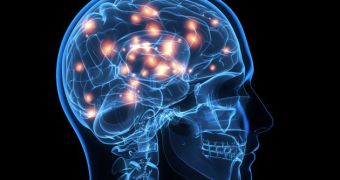Anatomically-wise, our brains are very much alike. A collection of neurons and blood vessels in between. All the same, researchers at Yale University in the US claim to have found evidence that, at a closer look, the fact of the matter is that no two brains are alike.
Thus, the scientists say that, when it comes to their inner workings, our brains are as unique as our fingerprints. So much so that it is possible to tell individuals apart simply by looking at their patterns of brain activity and how different brain regions communicate with one another.
We all have a cognitive fingerprint
In a report in the journal Nature Neuroscience, the Yale University specialists explain how, as part of their investigation, they used functional magnetic resonance imaging to study the brains of a group of volunteers.
The study participants had their brains scanned on several occasions so that the scientists could map activity across as many as 268 distinct brain regions. It was discovered that, when the volunteers were asked to solve the same cognitive task, their brains fired differently.
In a nutshell, each of the study participants was found to display their own pattern of brain activity. Having identified the patterns corresponding to each individual, the researchers could then tell the volunteers apart simply by looking at what their brain was up to.
What's interesting is that, while the researchers could identify the volunteers with 99% accuracy when they were involved in cognitive tasks, their success rate dropped to 80% when the volunteers were resting. Apparently, our so-called cognitive fingerprint is at its most obvious when we're actually thinking and our brains are bouncing signals back and forth.
Why this investigation matters
For one thing, it's kind of cool to learn that there isn't a single soul out there with a brain quite like our own. Sure, having one-of-a-kind fingerprints is pretty cool, but it's nothing compared to a unique brain.
Then, the Yale University team behind this investigation say that, if they are right and each brain really does function differently, then this is something medical experts attempting to treat neuropsychiatric diseases should take into account.
“In most past studies, functional magnetic resonance imaging data have been used to draw contrasts between, say, patients and healthy controls. We have learned a lot from these sorts of studies, but they tend to obscure individual differences, which may be important,” said specialist Emily Finn in a statement.

 14 DAY TRIAL //
14 DAY TRIAL //